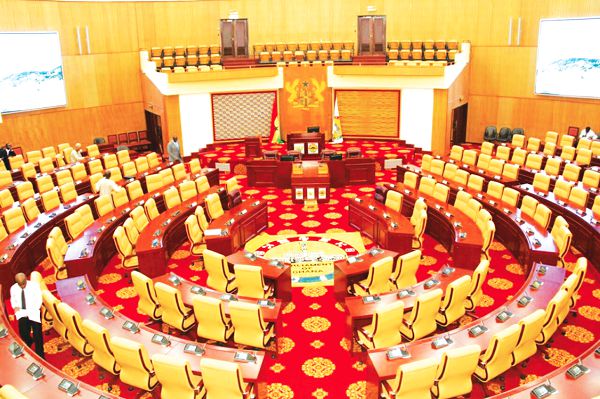It has never happened before in the history of this country since it entered into a democratic dispensation that the ruling government will have to operate in a political environment where it has the same strength as the opposition in parliament.
The norm has always been that the ruling government has a clear majority in parliament, making it effortless to have its policies rubber-stamped by its members in the House. Interestingly, that is not the setting awaiting the next government; as both the ruling New Patriotic Party (NPP) and opposition National Democratic Congress (NDC) have an equal number of seats in parliament, with one independent who is a progeny of the ruling party.
This makes the next Parliament – which is the eighth of the fourth republic – what is termed a ‘Hung Parliament’, with almost equal strength on both sides of the house; even though the NDC insists (and is currently contesting the result of the Techiman South seat) its candidate won, contrary to what the EC has put out.
Diverse views have been shared following the declaration of results from the December 7, 2020 Parliamentary elections by the Electoral Commission – declaring 137 seats each for the ruling NPP and opposition NDC.
This has opened-up conversations on how the 8th Parliament will look – with some schools of thought arguing that the situation will contribute to strengthen democracy and good governance, while others say the president will be confronted with difficulties in running the country.
Some have also proposed that it is time for government to engage the NDC regarding who should be appointed Speaker of Parliament, saying that once there is that consensus government can make progress in Parliament; otherwise, there’s a likelihood of the NDC kicking against most policies – loan agreements, contracts, among others – which come to Parliament for approval.
Commenting on this, the current Majority Leader of Parliament, Osei Kyei Mensah Bonsu – an experienced member of the House, told Rainbow Radio that the next Parliament will be much more diligent in scrutinising reports and agreements which come before it.
He was optimistic that Ghana’s democracy will improve following the parliamentary election’s outcome, adding that the formulation of laws, finance, agreements, loans and the preparation of budget will become more efficient in the 8th Parliament.
Speaking with the B&FT, MP for Juaboso Constituency and ranking member on the Health Committee, Kwabena Mintah Akandoh, posited that the incoming Parliament will be one that both sides of the house will have a say in, given their equal strengths.
“I am very happy to be a member of the next parliament, because it is going to be a very interesting one. It is going to be a type of parliament that one half cannot ignore the other or arrogantly run on the other half because they have the numbers and the other half do not matter. It should be one where the posture is of consensus building, which is the main essence of Parliament.
“But because sometimes one half of the house outnumbers the other, even if we do not reach consensus the majority will always have their way without coming to a compromise. But I believe that this Parliament will not be like that.
“We should also have it at the back of our minds that we are working for Ghana and in the interest of Ghana,” he said.
As regards the passage of bills, Mr. Akandoh maintained that his side of the house (NDC) will not just accept anything government brings to Parliament, unless it has been well scrutinised and assessed to arrive at a consensus.
“We will adequately scrutinise any document, any bill that comes to parliament going forward. We are almost equal in number, and therefore we should respect each other and do the right thing. So, the President will not sit in Flagstaff House and say we should do something, and since we belong to the President we are doing it for him – no.”
Asked whether he envisages the President having difficulty running the economy without a clear majority for the governing party, the MP stated that the President will not have a problem working with Parliament if he commits to doing the right things and not only those that favour him and his party.
“If you are for the truth, it shouldn’t pose a difficulty for the President; but if not, you will definitely have a problem with us in Parliament – because we will force you to do the right thing. You cannot intimidate us with the numbers,” he added.










